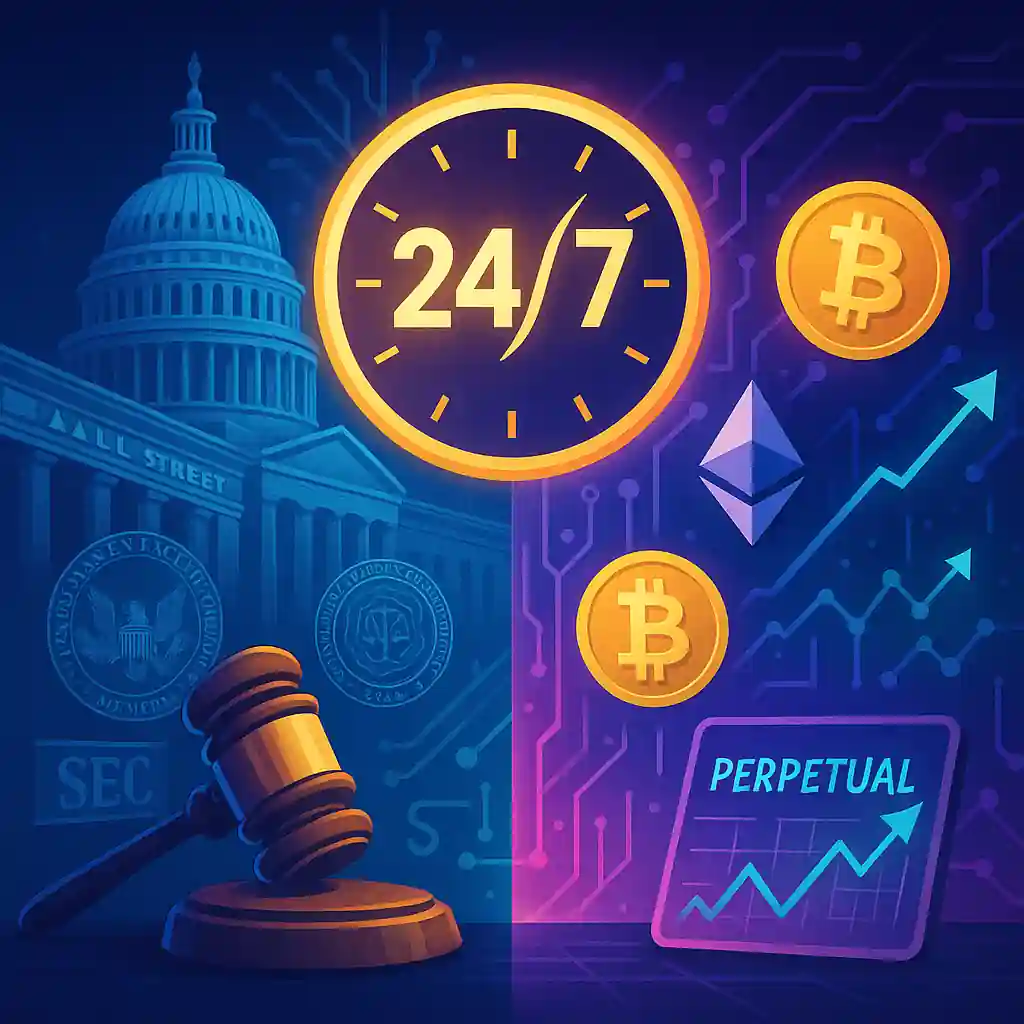Regulators take inspiration from the crypto market
The SEC and CFTC shocked investors with a joint proposal that Wall Street could adopt 24/7 trading, similar to the crypto market. In their September 5 statement, SEC Chairman Paul Atkins and CFTC Acting Chairman Caroline Pham argued that around-the-clock activity could modernize U.S. financial markets. They cited examples such as foreign exchange, gold, and the crypto market, which already operate without downtime.
Challenges of a one-size-fits-all model
While highlighting the advantages of the crypto market model, the regulators admitted that not all asset classes may benefit equally. Extending continuous trading to every security could create operational and liquidity risks. The statement noted that a “one-size-fits-all” approach may not work, signaling a cautious adoption. Still, the acknowledgment that the crypto market sets a precedent shows its growing influence.
Protecting self-custody rights
Another significant point in the announcement was the recognition of Americans’ right to self-custody. Just as in the crypto market, where users can hold their assets directly, regulators are considering frameworks that empower investors. This could align traditional finance with the values of decentralization that define the crypto market, marking a step toward convergence between Wall Street and Web3.
Event contracts and prediction markets
The regulators also focused on event contracts, an area gaining traction within the crypto market. By providing clarity for U.S. platforms, the SEC and CFTC hope to legitimize products that often face legal gray zones. Event-based contracts could allow investors to trade outcomes tied to politics, economics, or sports. Their integration into regulated markets would mirror innovations already common in the crypto market.
Onshoring perpetual contracts
A notable part of the proposal is bringing perpetual contracts, popular in offshore crypto markets, into the U.S. system. These contracts allow traders to speculate without an expiration date, fueling liquidity and engagement. By permitting such products on SEC- and CFTC-regulated platforms, regulators aim to capture trading activity that currently occurs abroad, strengthening domestic participation in the crypto market.
Innovation exemptions for DeFi
In a bold move, regulators are considering “innovation exemptions” to allow decentralized finance protocols more flexibility. This could enable peer-to-peer trading of spot, leveraged, or margined products directly in the crypto market. Such exemptions would promote experimentation while keeping oversight intact. For DeFi users, this recognition by top regulators signals growing legitimacy of practices rooted in the crypto market.
Potential benefits and risks
If implemented, continuous trading like the crypto market could reshape investor behavior. Liquidity might increase, but volatility could also intensify. Retail and institutional players would need to adapt to a world where financial assets never stop moving. The regulators’ challenge will be balancing efficiency with investor protection, a balance the crypto market itself continues to navigate.




